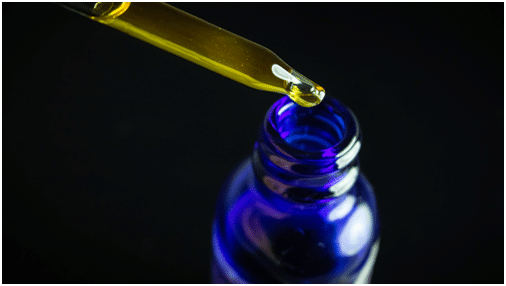Although smartphones and other electronic gadgets may contribute to keeping you awake at night, they aren’t the only thing that can keep you from a restful night’s sleep. There is a wide range of internal and external factors that can affect how much sleep you get, some of which can be relatively easy to alter to help you get better quality sleep.
Here are the top factors preventing slumber and what you can do to catch better Zzzs.
Also Read: 6 Easiest Ways to Improve Mental Health Conditions
1. Bright Light
Light has a profound influence on our internal clock and can indirectly affect our ability to fall asleep. Whether you’re sleeping in an area with too much sunlight or you have too many lights on around you, these light sources can influence your sleep. If you have little control over the light sources affecting your sleep, taking CBD oil for sleep can help you get to sleep and stay asleep, but there are other steps you can take to limit light’s effects.
Ever since the invention of the light bulb in the late 1800s, we’ve been increasingly exposed to more light. Our eyes’ retinas have specialized cells that are light-sensitive, which essentially tell our brains whether it’s day or night to guide our sleep patterns. When we are exposed to light during typical nighttime hours, this can delay our internal clock phase that tells us it’s time for rest and contributes to us staying up later.
To help maintain a more natural sleep cycle, it’s best to avoid direct exposure to bright light before bed. This means using shades, blinds and other window treatments to block out any sunlight and dim or turn off overhead lights and lamps. During the daytime, it may also be helpful to use amber lenses to block blue light from computer screens and other devices, as evidenced in Amber Lenses to Block Blue Light and Improve Sleep: A Randomized Trial.
If you’re starting to feel sleepy, that’s a good sign it’s time to turn off the lights and call it a night.
2. Shift-Based Work and Jet Lag
While light normally guides our internal clock, changes in our schedule, such as late-night shifts at work or traveling across time zones, can do a number on us. If you are traveling quickly across one or more time zones, this travel can disrupt your body’s internal clock and cause a temporary sleep disorder known as jet lag. This can leave your body feeling out of sync, making it harder to know when to eat, sleep and more. This can leave you feeling fatigued, irritable, cause indigestion and lack of concentration or make it near impossible for you to sleep at all.
The same goes for workers who perform their work in shifts, especially at night. Many night shift workers report drifting off to sleep at work. This is because their internal clock is telling them it’s nighttime and time for sleep, but their job is demanding they stay awake to perform the task at hand.
No matter if you’re a nurse, physician, police officer or airline staff, being able to perform your job safely during your night shift is critical. That’s why it’s essential to ensure you are getting quality sleep before your shift. The same is true for people traveling long distances to avoid jet lag.
By getting plenty of rest before your trip or shift, regulating your light exposure and staying on your new schedule, you can ease into the transition of working at night or operating in a new time zone. If you’re struggling to adjust to your new routine, using CBD sleep oil may help you find sleep more easily and give you the restorative sleep you need to function on your new schedule.
3. Prescription Medications and Substances
We regularly consume many common substances that can negatively affect our sleep, including caffeine, alcohol, nicotine and more. Beyond that, many prescribed medications, such as antidepressants, beta blockers and other meds, can chemically impact our sleep, too.
While everyone’s tolerance level is different, caffeine acts as a stimulant to the central nervous system. This can help you feel alert, but it may come at a cost later. Caffeine decreases the quantity of REM sleep and increases how many times you wake up throughout your sleep.
Similarly, alcohol is sometimes used as a sleep aid because of its sedative nature. While it may help you fall asleep faster, it compromises the quality of your sleep. Like caffeine, too much alcohol may increase the number of times you wake up or even cause insomnia. Many drinkers also know you can suddenly wake up and not get back to sleep once the alcohol leaves your system. If you suffer from sleep apnea, alcohol can make these symptoms worse.
Avoiding these substances and other medications before bedtime can help ensure a better night’s sleep. If you’re taking a prescription medication that is negatively affecting your sleep, consider talking to your doctor to see if there are other options available with fewer negative side effects.

4. Pain, Anxiety and Stress
Like medication and some substances, psychological and medical conditions, such as stress, anxiety and pain, can cause disruptions to your sleeping patterns and limit the quality and quantity of your sleep. If you are suffering from tension, aches or chronic pains in your body, this discomfort will undoubtedly limit deep sleep and cause you to awaken more regularly.
Similarly, those who experience anxiety, stress and depression may struggle to fall asleep. When they do, they typically don’t enjoy as much deep sleep. This is likely because our bodies are built to respond to potential dangers by waking up, and stress can stimulate this programmed response, making sleep harder to come by.
5. Sleeping Environment
While light factors are part of our sleeping environment, sound and temperature also play a role. Minimizing noise and sounds that can disrupt your sleep, as well as setting your sleeping area to a comfortable temperature, can help to put you at ease and remove any disturbances that might hinder your ability to fall asleep and stay asleep.
Controlling these variables and incorporating tips for a better bedtime routine, such as taking a CBD tincture for sleep, can help ease a racing mind and put you in a more Zen state for better sleep.

The Takeaway
Healthy sleep isn’t always easy to come by, but recognizing the factors beyond your phone that might be interfering with your slumber can help you root out what’s standing between you and a good night’s sleep. Limiting direct exposure to light, avoiding medications and substances that cause restlessness and creating a comfortable sleeping environment are just some ways you can get the rest you need.






